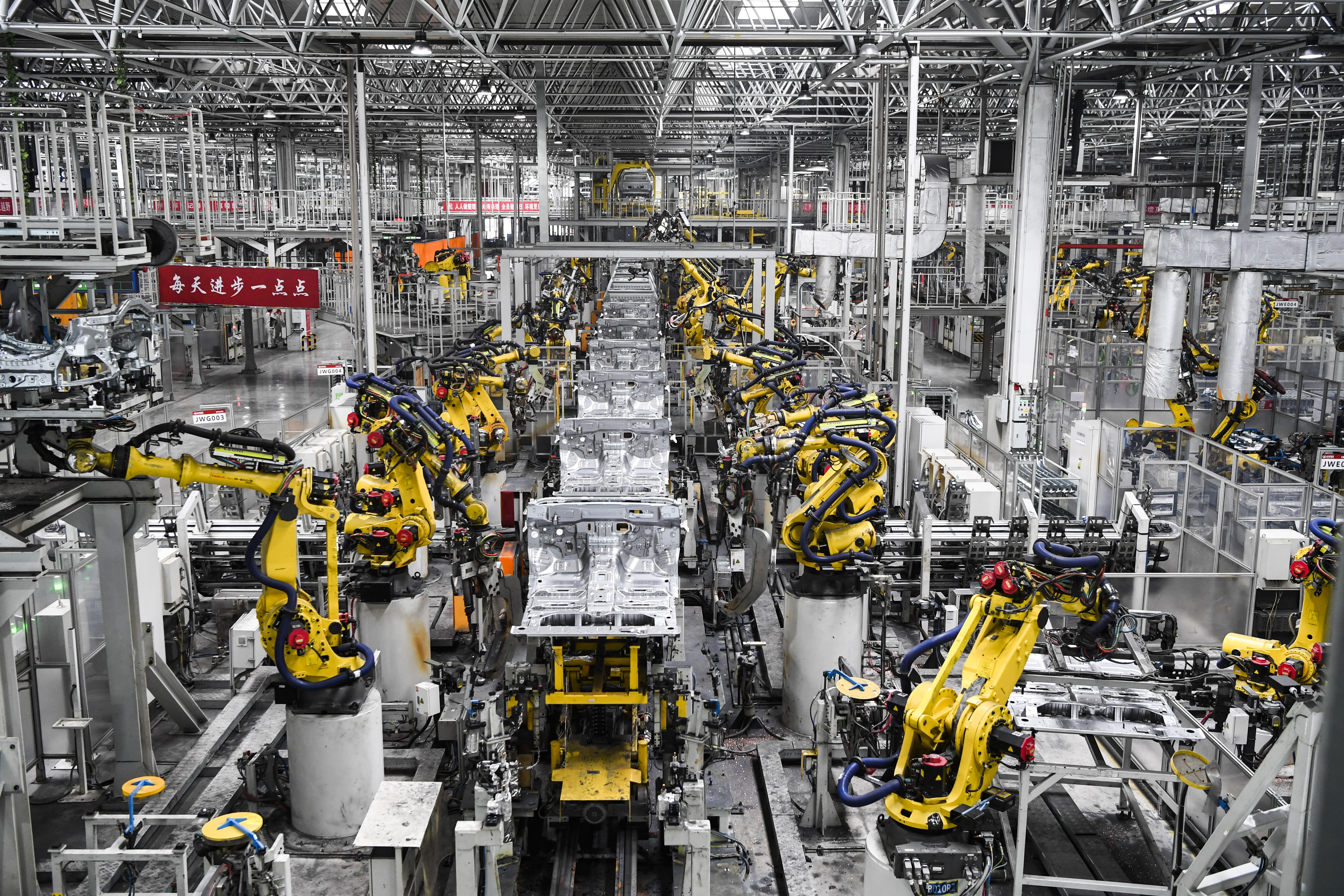China's remarkable achievements over the last 10 years
- By Einar Tangen
 0 Comment(s)
0 Comment(s) Print
Print E-mail China.org.cn, October 20, 2022
E-mail China.org.cn, October 20, 2022

The last 10 years have seen China emerge politically, economically, and socially.
Internationally, China has been the target of American fears about its system and success. The result has been a growing negative perception of China in the Developed Global North, reinforced by repeated unproven accusations by governments and the media, which views China as an existential threat to their ideological, economic, and military supremacy. At the same time, the developing and emerging Global South and Central Asia, for the most part, have grown closer to China. The Belt and Road Initiative (BRI), the Regional Comprehensive Economic Partnership (RCEP), the Asian Infrastructure Investment Bank (AIIB), the Shanghai Cooperation Organization (SCO), the BRICS cooperation, vaccine donations, debt forgiveness, and Beijing's less confrontational approaches, have seen China emerge as an economic and political model and economic partner.
Beijing has maintained its pursuit of a different path, one that has successfully put people above economic-centered policies, like the elimination of extreme poverty, access to health care, and improvements in its pension programs. It has done so while expanding its economy every year, including during the pandemic, and saving millions of lives through tough but effective health measures. It has reformed its military and pursued corruption wherever it was found. This is not to suggest that China is perfect, far from it, but its "study, plan, implement, adjust, and expand" approach has yielded remarkable successes.
Gunboats in the Taiwan Strait, AUKUS and the QUAD, clearly signal Washington's intent, despite lip service to the Three Communiques, which specify friendliness and a "One China" policy.
Washington's narrative, assumptions, ideology, and adherence to American exceptionalism are a stage where these two different systems play opposing parts. The biggest difference is that China does not seek to impose its ideas or models on others, while the U.S. does.
These include the 2009 financial crisis, endless conflicts in Iraq and Afghanistan, dangerous streets, crumbling infrastructure, a botched response to COVID-19, unilateral tariffs, arbitrary withdrawals from treaties, an attempted insurrection in the Capitol, an unrepentant ex-president who claims the system was fixed against him, 31 trillion in national debt, walking Europe into a conflict in Ukraine, a thoughtless increase of Federal interest rates that is exporting inflation to the entire world. The only thing that seems aspirational are America's education institutions and their reputation for excellence, but high prices, racist attacks, and difficulties getting visas are even chipping away at this positive point.
As the economic gravity steadily shifts East, a new multipolar political reality is emerging that goes beyond China. The fault lines are the political divisions emerging between the Developed Global North and the Developing and Emerging Global South and Central Asia, as exhibited in voting patterns in the UN, in OPEC, ASEAN, CPTPP, RCEP, BRICS, and SCO, as well as organizations that are attracting new members, since the G7 and G20 are unable to act.
Socially, 90% of the Chinese people express confidence in their government. China has also found pride in its cultural roots, expressed in fashion trends like traditional Chinese attire hanfu, which has gained popularity across the world and signifies a new reality.
China has made remarkable progress in the face of concerted headwinds. It has successfully transformed from an underdeveloped country to a modern economic powerhouse. China's market, production, and place in the global supply chain continue to drive it to be more efficient. In addition, innovations in fin-tech are making China an economic oasis.
The last 10 years prove that, despite the yearly predictions of imminent economic or political collapse and the best efforts of those who fear China's rise, China has a resilient and focused system that won't be easily derailed.
Einar Tangen is a senior fellow at Beijing-based Taihe Institute.
Opinion articles reflect the views of their authors, not necessarily those of China.org.cn.
If you would like to contribute, please contact us at opinion@china.org.cn.





